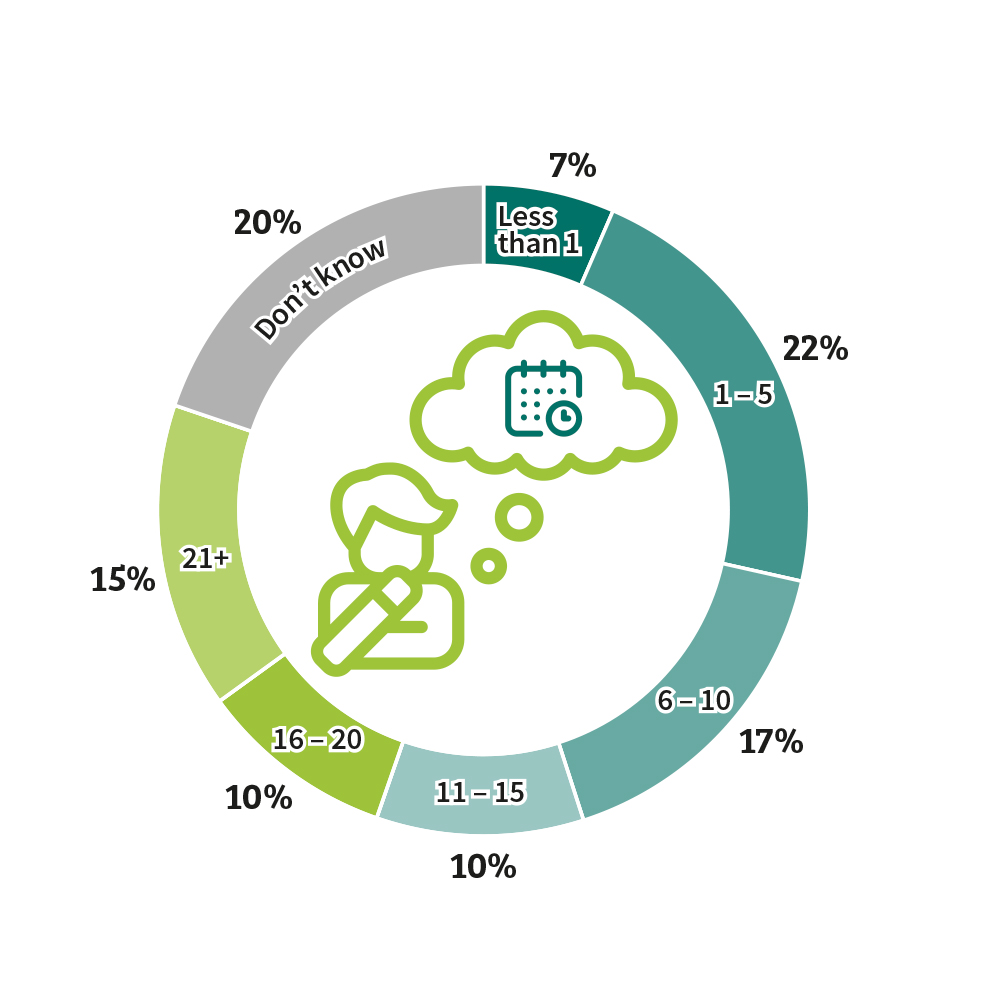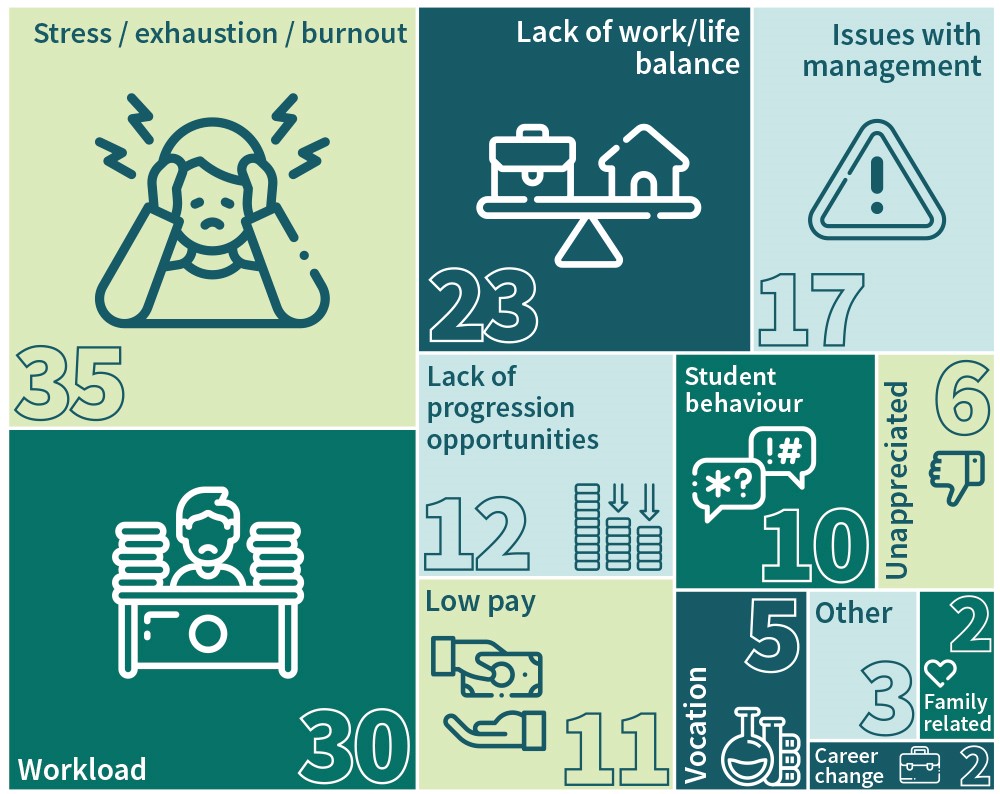Our survey reveals that 18% of teachers at mainstream state schools are planning to leave the profession within five years for reasons other than age/retirement.
Reasons for considering leaving other than age or retirement (% of respondents)
![]()
I will remain in the profession probably between 1–2 years: it simply is not rewarding or respected in the UK. I do not feel like I get paid enough for what I do. I also do not feel like I have a life. It is a highly pressurised job that is often disproportionately and unfairly so.
During interviews, teachers particularly highlighted the impacts of:
- ‘unrealistic’ expectations around marking, particularly assessments
- the amount of content that is expected to be covered
- changes to content
- the number of lessons per day
- administrative tasks
- teaching outside of their specialism
There is a lack of support. Some people in leadership positions aren’t seeing the health and wellbeing of teachers as a priority, they’re all about looking good in an inspection and on a report and not looking at the health of teachers.
![]()
Workload. When anything new comes in, trying to find new content. One example, trying to make a fuel cells lesson interesting is quite a challenge, so you’re constantly trying to find something. You’ve got to learn about it yourself, then you’ve got to find a way to teach the students, then you’ve got to try and find something that might be of interest to them, so it snowballs into the new content; there isn’t much out there to develop and use.
These negative experiences are reflected in teachers’ low levels of job satisfaction
Teachers at state mainstream schools considering leaving the profession in the next five years (for reasons other than age/retirement) recorded an average score for job satisfaction of 4.4 out of 10 versus 6.3 for all state mainstream teachers. The same respondents also reported poorer wellbeing ratings, with 3.4 out of 10 for those looking to leave vs. 5.4 for all state mainstream teachers.
During the interviews teachers revealed job satisfaction was positively affected by student achievement, enthusiasm for the subject and intellectual challenge.
Adequate staffing levels in state schools are also correlated with higher job satisfaction and well-being. High satisfaction levels are seen for teachers who reported adequate staffing in chemistry (6.5), physics (6.6) and science technicians (6.5).
A combination of a highly demanding job and low pay
During the interviews, teachers said that a combination of a highly demanding job and low pay were the most prominent factors affecting staff retention. This was reflected across nations, school types, career stages and specialisms.
![]()
The current model is based on keeping schools out of administration rather than fully supplying a functioning environment both in terms of the physical assets and infrastructure and in terms of the pay that teachers receive for a job that is more consistently demanding than those my friends have.
What we are doing
We will continue to seek to understand the reasons teachers might consider leaving the profession and provide support to teachers to aid retention.

The ����ֱ��app���� Teaching Survey will give us a year-on-year understanding of teachers’ experiences. These insights will inform our policy campaigning and help us to represent the interests of teachers and technicians. They will also guide the development of our empowering support for teachers.
We will collect more data to understand if teachers of the sciences from Black and minority ethnic backgrounds may be more likely to leave the profession in the next five years than those who identify as White.
We provide high quality support for teachers and science technicians through . This free service for secondary schools and colleges includes access to sustained professional development courses, a well-being toolkit for science leaders and regular ideas and inspiration through Education in Chemistry magazine.
We also provide inspiration, support and resources for Primary teachers through .
����ֱ��app���� members can use our and access many other forms of support through our Chemists’ Community Fund.
Our includes articles and resources on maintaining good mental health and dealing with challenges in the workplace.
Explore more headline findings from the survey
Related links
Our education website brings together all our online support for chemistry teaching in one place
Related pages
- The ����ֱ��app���� Teaching Survey 2023
- The elements of a successful curriculum - our vision for 11-19 chemistry education
- New insights into the school science technician workforce
- Teacher training during the pandemic and the long-term impact on practical work in schools
- Higher technical education - research provides new insight into the needs of learners, providers and employers
- Listen to our award winning podcasts covering many aspects of sustainability
- See all our chemistry education policy
- See our inclusion and diversity policy
- See all our policies, reports, evidence and campaigns



